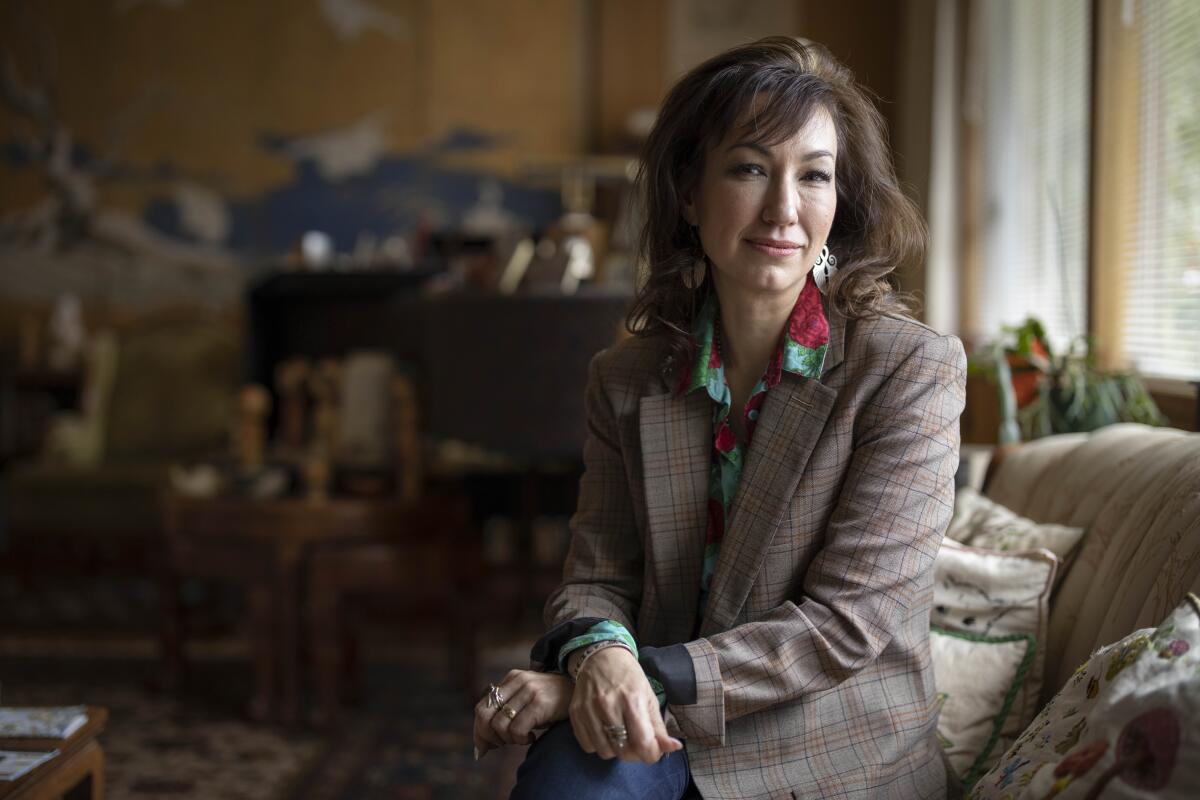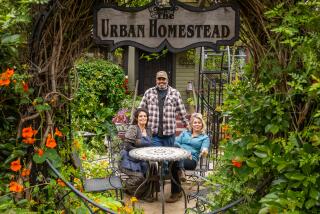Meet the heartland Evangelicals who feed America

Until recently, most of us haven’t spent too much time thinking about where our food comes from.
For Marie Mutsuki Mockett and her family, it has been a lifelong preoccupation, which she explores in “American Harvest: God, Country, and Farming in the Heartland.”
While “amber waves of grain” might conjure up vague patriotic notions among coastal city dwellers, for the men and women who sow, grow and harvest the wheat we live on, it’s their livelihood. Mockett refers to the gulf between these two cultures as “the divide,” and “American Harvest” endeavors to make sense of it.
Although her sensibilities are closer to nearby Salinas, Calif., birthplace of John Steinbeck, Mockett is waiting out the quarantine in her family home in Carmel, a town known for its golf courses, country clubs and beautiful beaches. Her bohemian parents moved to Carmel in 1971 and never left; she calls it “the house where I learned to think like an artist.”
Meeting Mockett, one would never guess the slender and elegantly dressed author and professor is also an absentee farmer. (She owns land but doesn’t farm it herself.) Mockett moves between these and other worlds with enviable ease, which makes sense when you consider her upbringing. Her father was a farm boy from Kimball, Neb.; her mother grew up in post-World War II Japan. Both were classically trained musicians, and their home is a mix of stylish sophistication and prairie pragmatism, from the hand-painted Japanese screen to the meticulously landscaped back yard.
“I would tell people in New York that I was going to harvest,” Mockett said, recalling her years as an undergrad at Columbia University, “and that sounded so exotic and weird to them.”
Although she attended private schools, Mockett grew up with a close connection to the earth. Every summer her family traveled in an RV to the Mockett farm, which has been in the family for more than 100 years. The farm straddles the Nebraska-Colorado border, though most of it sits near Kimball, where her grandmother once owned the finest house in town.
The Mocketts have always grown wheat, but they don’t cut it. Because the machinery used to harvest wheat has become increasingly specialized and expensive, farmers rely on others to do it for them — harvesters like Eric Wolgemuth. Wolgemuth and his colorful crew take on starring roles in “American Harvest.” He is one of approximately 450 members of U.S. Custom Harvesters, an organization that supports most of the wheat cutting in America.
Mockett cultivated her artistic side by moving to New York — although it was Carmel she was escaping, not the farm. “Socially, I really struggled, and really wanted to get out,” she said. Mockett went to Columbia, worked at a New York literary agency and wrote the novel “Picking Bones From Ash,” published by Graywolf.
But after her father died in 2008, she inherited the Mockett family farm — and with it a renewed interest in its operation. Mockett’s initial questions exposed her to the divide. “I asked my family, ‘Is the farm organic?’ And they were amused because to them it was such a city question.”
The bewilderment on the other side was more contemptuous than amused. “I’d spent enough time in New York City to know there was a certain way I was supposed to look at where I was from,” Mockett said. “And I wasn’t comfortable with that. Certainly my family didn’t look at other farmers in that way. So then I thought, Wow, nobody has written about this in a way that really investigates the reality of this world.”
It was a world that Wolgemuth was eager to share with Mockett, and he invited her to accompany him as they traveled across the country from Texas to Idaho to cut the wheat as it ripened.
In “American Harvest,” Mockett documents her journey with Wolgemuth’s mostly male crew, who are all evangelical Christians. They pray before meals, abstain from premarital sex and call up Bible verses on their mobile phones with the ease of sports fans checking the latest scores.
As a farmer, Mockett felt that her desire to witness the harvest was natural, but for the harvesters her presence was anything but. Not only was she a woman of color from the city with a college education, she wasn’t even a Christian.
The only religious training Mockett had received was as a Buddhist. Her family on her mother’s side owns a temple 25 miles from the Fukushima Daiichi nuclear power plant. Mockett, who is fluent in Japanese, wrote about her experiences in Japan after the 2011 tsunami and nuclear meltdown in her last book, “Where the Dead Pause and the Japanese Say Goodbye.”
That journey would give her the confidence to take on the middle of her own country, a culture in many ways more foreign to her. “I learned that by going to these places, I would find things to write about that other people hadn’t,” Mockett said. “I had faith that if I did that, I would have the story.”
Although Mockett attended an Episcopal private school in Carmel, religious education wasn’t a priority, and she was unprepared for the depth and variety of evangelical worship, from mega-churches in Oklahoma to services on the homestead in Nebraska. “I can’t say that I was in church thinking, ‘This is stupid,’ because I didn’t think that. What I thought was, ‘I don’t understand what’s happening.’ ”
In addition to being a disquisition on farming, “American Harvest” is an initiation for the sort of reader she knows and has written to before, the urbanite who has little grounding in Christian traditions as they evolved in the heartland.
She began asking questions that went far beyond the nuances of organic farming — and led to many of the book’s most stirring passages. For instance, why are many evangelicals who believe in creationism OK with genetically modified crops?
While Mockett was adamant about not wanting to tamper with anyone’s belief system, conversations about faith led her to investigate her own beliefs.
“One of the things I learned is the human struggle is huge,” she said. “The things that we struggle with have been going on for a very long time. That has weirdly made me feel more calm, because I don’t expect any of the big existential questions to be solved in my lifetime.”
Mockett hopes “American Harvest” will have a similar effect on her readers, making them curious and critical of their own assumptions.
“I want them to understand,” Mockett said, “how hard men and women work to bring us our food — and to understand more about our shared history and our interdependence.”
And if, along the way, we questioned why we believe what we believe, that would be good too. “Even when we think we don’t belong to a belief system,” Mockett said, “we do.”
Ruland’s book with Bad Religion, “Do What You Want,” will be published in August.
More to Read
Sign up for our Book Club newsletter
Get the latest news, events and more from the Los Angeles Times Book Club, and help us get L.A. reading and talking.
You may occasionally receive promotional content from the Los Angeles Times.







